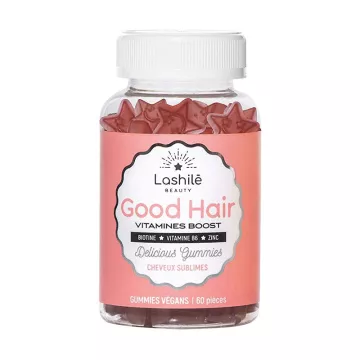
What are the main causes of dull hair and how can they be avoided?
Dull hair is often the result of lack of proper care, excessive exposure to external elements such as the sun or cold, and frequent use of harsh chemicals. To prevent your hair from becoming dull, it's essential to adopt a proper hair care routine, including the use of moisturizing shampoos and conditioners, as well as nourishing hair masks. We also recommend limiting heat treatments such as blow-drying, straightening and curling.
What specific products are recommended to revitalize dull hair?
To restore shine to dull hair, choose products enriched with nutrients such as keratin, argan oil, coconut oil and silk proteins. These ingredients help repair the hair fiber and seal in moisture. Among the most effective products are repairing hair masks, nourishing oils and serums that provide a shiny finish and protect against environmental damage.
How do you incorporate these products into a daily care routine for dull hair?
An effective routine for dull hair starts with a gentle wash with a moisturizing shampoo, followed by a rich conditioner that helps detangle and soften hair. Twice a week, apply a nourishing mask, leaving on for at least 10 minutes before rinsing. Incorporate a hair oil or protective serum into your daily routine by applying a few drops to the lengths and ends of damp or dry hair, which will help prevent breakage and enhance shine.
What styling techniques promote healthy, shiny dull hair?
To maintain health and shine, we recommend using styling tools at moderate temperatures. Prefer hair dryers with ionic options and ceramic or tourmaline straightener plates to minimize thermal damage. Hairstyling techniques such as loose braids, relaxed buns and low ponytails help reduce tension on roots and avoid breakage.
Are there effective home remedies for dull hair?
Home remedies can be a natural and cost-effective alternative for treating dull hair. Ingredients such as apple cider vinegar, lemon juice and aloe vera are known for their cleansing and moisturizing properties. A rinse with apple cider vinegar, for example, can help remove product residues and restore hair's pH, increasing shine.
What role does diet play in the health of dull hair?
A balanced diet plays a crucial role in overall hair health, including shine and vitality. Essential nutrients such as vitamins A, C, E, omega-3, zinc and iron help improve hair texture and strength. To combat dullness, include foods rich in these nutrients in your diet, such as oily fish, nuts, whole grains, green leafy vegetables and fresh fruit.
How does the water we use affect the quality of dull hair?
Hard water, loaded with minerals like calcium and magnesium, can make hair duller by leaving deposits that make it stiff and less reflective to light. Using a filter to soften the water or rinsing the hair with filtered or bottled water can help reduce this effect, leaving hair softer and shinier.
How does stress affect the appearance of dull hair?
Stress can have a significant impact on hair health, leading to dullness and increased hair loss. Chronic stress interferes with hair growth cycles, potentially leading to weakening and a reduction in natural shine. Managing stress through techniques such as meditation, regular exercise and adequate sleep is essential to maintaining healthy hair.
What impact do styling tools have on dull hair, and how can damage be minimized?
Although thermal styling tools can offer a variety of styles, their frequent use can cause thermal damage that leaves hair dull and brittle. To minimize damage, we recommend using a thermal protector before each use of these tools, and choosing lower temperatures. Also, limit the use of these tools to a few times a week rather than daily.
How can salon treatments restore shine to dull hair?
Salon treatments, such as keratin treatments, oil baths and hair glosses, are specifically designed to treat dull hair. These treatments can deeply nourish hair, seal cuticles to improve light reflection, and provide protection from environmental factors. It is beneficial to consult a professional hairdresser to determine which treatment is best suited to your hair type and specific needs.